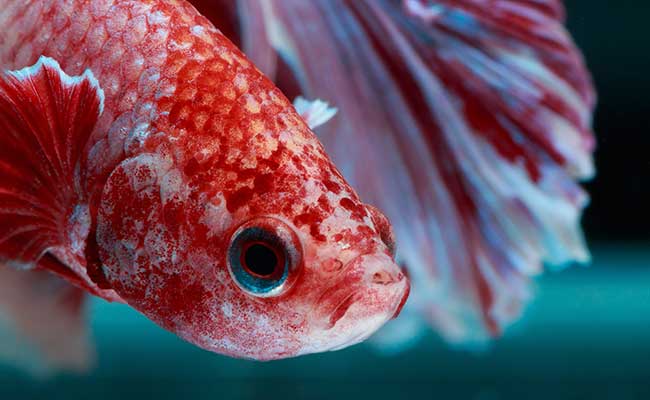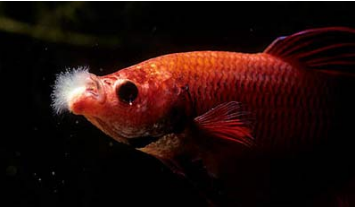Betta Fish Mouth
If you're a betta fish owner, you know how important it is to keep your fish healthy. One common issue that many betta fish face is problems with their mouth. Betta fish mouth problems can be frustrating and concerning, but with a little know-how, you can prevent and treat these issues. In this article, we'll take a closer look at betta fish mouth and how to keep your fish healthy and happy.
The Pain Points of Betta Fish Mouth
Betta fish mouth problems can manifest in a variety of ways, including open mouths, white spots, and redness. These issues can be caused by a range of factors such as poor water quality, injuries, and infections. Not being able to eat or breathe properly can cause significant distress for your fish, and if left untreated, these issues can be fatal.
What is the Target of Betta Fish Mouth?
The target of betta fish mouth is to keep your fish healthy and happy. By ensuring that your betta fish's mouth is in good condition, you can help them eat properly, breathe properly, and enjoy their environment to the fullest. A healthy mouth is a key component of a healthy fish.
Main Points to Keep in Mind
To ensure the health of your betta fish's mouth, it's important to maintain a clean tank with good water quality. If you notice any signs of mouth problems, such as sores or redness, it's crucial to take action right away. Treating the underlying cause of the issue, such as infection or injury, is the best way to help your fish recover. Additionally, providing your fish with a varied and balanced diet can help promote mouth health and prevent issues down the line.
How to Identify Betta Fish Mouth Problems
Identifying betta fish mouth problems can be tricky, as there are several issues that can manifest in the mouth area. One common issue is mouth fungus, which can cause white, gray or green patches around the mouth area. An infected fish might also rub its mouth against objects in the tank, indicating discomfort. Another problem is mouth rot, which is an infection that can cause sores or holes in the mouth area. Redness, inflammation and swelling are also signs of mouth problems in betta fish.

Personal experience: I have owned several betta fish over the years and have dealt with mouth problems on multiple occasions. One of my fish developed mouth fungus, which was characterized by white patches around its mouth. I immediately treated the issue by changing the water and using medication, and the fish was back to normal within a few days.
Common Treatment Options for Betta Fish Mouth
The treatment of betta fish mouth depends on the underlying cause of the issue. For infections, medications such as antibiotics or antifungals may be necessary. However, it's important to ensure that the medication is safe for betta fish before administering it. Injuries may require a more hands-on approach, such as the use of aquarium salt or a quarantine tank. In some cases, simply improving water quality can help resolve betta mouth problems.

Preventing Betta Fish Mouth Problems
Preventing betta fish mouth problems is all about maintaining a healthy and clean environment for your fish. This means doing regular water changes, providing a balanced diet, and avoiding over-feeding. Additionally, keeping your betta fish's tank free from debris and using proper filtration can help prevent infections and other issues from developing.
Final Thoughts
Betta fish mouth problems can be a major source of worry for owners, but by taking the appropriate steps and being vigilant about your fish's health, you can keep your fish healthy and happy. By providing a healthy environment and quickly addressing any issues that do arise, you can ensure your betta fish live long, healthy lives.
Question and Answer
Q: How often should I clean my betta fish's tank?
A: It's generally recommended that you do a 25% water change every week, and a full tank cleaning (with the removal of any decorations, substrate, etc.) every 4-6 weeks.
Q: My betta fish has a red spot near its mouth- what does this mean?
A: A red spot near a betta fish's mouth can indicate an infection or injury. It's important to monitor the spot closely and take action if it worsens or spreads.
Q: Can betta fish mouth problems be fatal?
A: Yes, if not treated, betta fish mouth problems can be fatal. Issues such as mouth rot or severe fungal infections can cause your fish significant distress and eventually lead to death.
Q: Can betta fish mouth problems be prevented?
A: While you can't prevent every issue, taking steps to maintain your fish's health and environment can help reduce the risk of mouth problems. By providing a healthy diet, keeping the tank clean, and avoiding overfeeding, you can help ensure that your betta fish's mouth stays healthy.
Conclusion of Betta Fish Mouth
Betta fish mouth problems can be a challenge for owners, but with the right approach, they can be prevented and treated. By being aware of the signs of mouth problems, taking action quickly, and providing your fish with proper care, you can ensure their mouth stays healthy and they can enjoy their life to the fullest.
Gallery
Betta Fish Mouth Fungus? | My Aquarium Club

Photo Credit by: bing.com /
Complete Guide To Betta Fish Diseases And Treatment - Nice Betta

Photo Credit by: bing.com / fish betta fungus mouth columnaris diseases treatment symptoms complete guide hard show saprolegnia
Mouth Always Open
Photo Credit by: bing.com / mouth fish betta open mag microscopy carnivorous bite bettas always normal example they
Betta Tongue? - Betta Fish And Betta Fish Care

Photo Credit by: bing.com / betta tongue fish but imgur sure think little
Does Your Betta Fish Sleep? How To Catch Your Betta Snoozing

Photo Credit by: bing.com / betta fish close mouth sleep does gills freshwater sleeping snoozing catch tell if